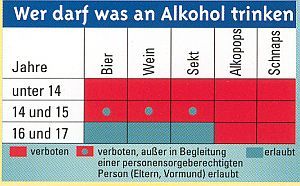While we're on the topic, or rather so far off topic I can't even see the tracks from here,

You can say that twice and mean it.

My apologies to all others, more OT coming.
 That's exactly why I let my kids drink it in unlimited quantities. Well, to be honest I let them drink just about anything (nonalcoholic) in unlimited quantities. But milk is so much more nutritious and less sugary (they drink it plain) than beverages they might choose instead.
That's exactly why I let my kids drink it in unlimited quantities. Well, to be honest I let them drink just about anything (nonalcoholic) in unlimited quantities. But milk is so much more nutritious and less sugary (they drink it plain) than beverages they might choose instead.
For my kids the alternative is water. Sugary beverages like lemonade, sodas, etc. used to be restriced to one bottle (0.75 liter) per child per week. Now Hannah is old enough to do what she wants, Helen isn't allowed any sugery stuff because of her Crohn's and Oliver simply doesn't like it (which I can't take credit for; just his personal quirk).
While we're on the topic, or rather so far off topic I can't even see the tracks from here, can I ask you one more quick non-New Yorker question? How do you introduce your kids to alcohol over there? Do you wait until they're 18 and then they just drink as older people do? Or do they drink at home at younger ages? I'm interested in your family, but also your culture in general.
Here's the legal situation:

On the Y-axis is the age of kids, on the X-axis are (LTR) beer, wine, sparkling wine, alcopops and hard liquor.
Red = illegal
Red with dot = only allowed when accompanied by an adult in charge
Teal = allowed
From 18 on, everything is allowed.
For my kids, I'd say it's okay to have a little bit of the softer alcohols from about 13 on. You know, special occasions, all the family gathering and having a toast, yada, yada. In such situations I'd say it's okay for kids to have one glass of sparkling wine mixed with OJ, or wine mixed with sparkling water, such things. It's roughly the same with all of our extended family/relatives. In practise however Hannah never wanted any of it, Helen isn't allowed any alcohol (Crohn's again) and Oliver is still too young.
Hannah started drinking alcohol between 15 and 16 with her sports team. Every now and then they celebrate special occasions with sparkling wine in the locker room after the game. I find that completely okay. When she started going out at night (around 16) I've always told her "You can drink, but you can't get drunk."
To be honest, I wouldn't have had a problem with her getting drunk once (but I didn't tell her that!

). It's something we all have to go through I guess. So far she hasn't, at least that I know of.

It was pretty much the same for me when I was a teenager. I started drinking a couple of sips at 12 on special occations. First time drunk was at 15. On purpose, to try it out. Didn't like the feeling/loss of control. In my whole life I was drunk exactly three times, and a little tipsy maybe once every five years or so. Mostly I just don't like the taste of alcohol.
The one thing I'm really strict about is drinking and driving. No way. I don't drive after a single alcoholic beverage, even though it would still be legal, and I await the same from my kids. For their driving friends the rule is one beer (or one wine). If the driver had more than that, my kids have to call me and I pick them up. Hasn't happened so far.
When I was a teenager, both the age of adulthood and the drinking age were 18 (i.e., like almost everywhere else in the developed world), but a few years later they raised the drinking age. The federal government did not force states to raise their drinking ages, but would not give federal highway funding to any state below 21. Thus, all states are now 21.
Now that's tricky!




